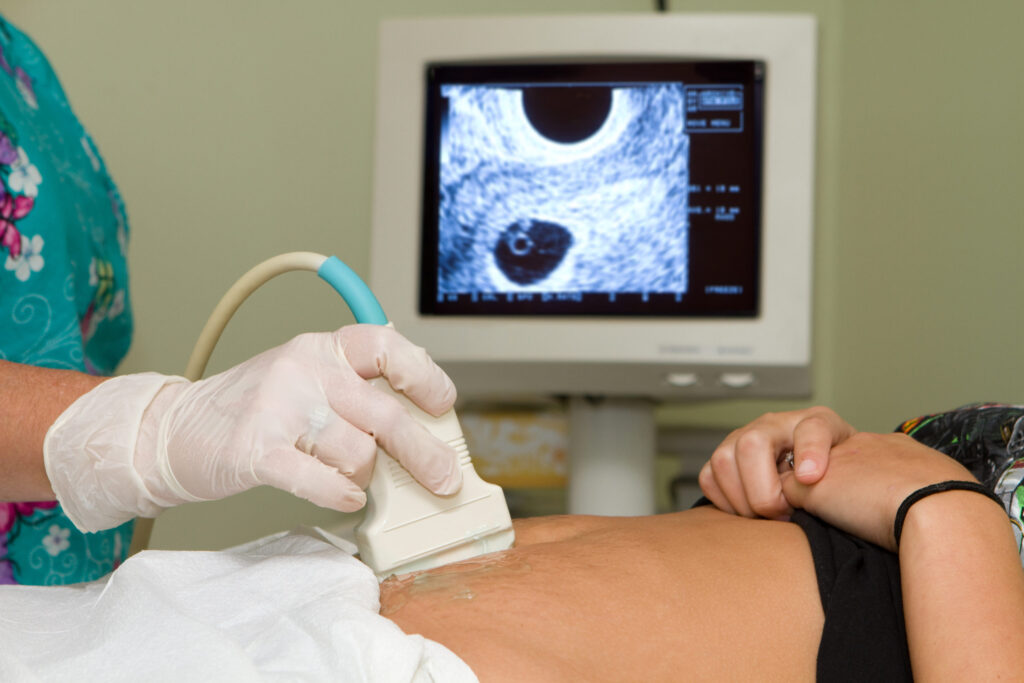NPR revives stale ‘clump of tissue’ argument against pro-life Texas law
September 9, 2021
To rally the troops about the new Texas abortion law, which bans abortion after the milestone of a “fetal heartbeat” is reached, the pro-abortionists at NPR have used your tax dollars to repackage the old argument that babies in the uterus are just of clumps of tissue.
At issue is the Texas ban on abortion once a “fetal heartbeat” is detected.
Calling the term “fetal heartbeat” is “pretty misleading,” Dr. Jennifer Kerns, an OB-GYN and associate professor at the University of California, San Francisco told NPR. “What we’re really detecting is a grouping of cells that are initiating some electrical activity. In no way is this detecting a functional cardiovascular system or a functional heart.”
Texas law bans abortions after a "fetal heartbeat" is detected, but doctors say that term isn't based in science. What an ultrasound detects in an embryo at 6 weeks is electrical activity from cells — not a heart.
And that sound? It's made by the machine.https://t.co/LZr4NWfc5E
— NPR (@NPR) September 4, 2021
Yes, and a newborn baby, can’t see well enough to drive a car. But that doesn’t make it not human.
Kerns specializes in pro-abortion research, which is fair enough. We have come to accept that scientists are not dispassionate referees anymore, but advocates for a biased point of view that cherry picks outcomes and conclusions to confirm their bias.
But NPR still is supposed to be an unbiased source of journalism, right? After all, they use federal tax dollars, don’t they? While NPR would contend that it’s a paltry sum they receive from the federal government, they don’t act that way when conservatives threaten to shut off the spigot.
“Federal funding is essential to the funding mix that supports public broadcasting, providing money for basic operations for many local stations,” says NPR’s WFYI in Indianapolis, adding that one purpose of the Corporation for Public Broadcasting, which doles out money for public broadcasters, is to act as a “firewall between partisan politics and public broadcasting.”
If that’s the case — in this instance, at least — they failed in the performance of their duty.
We have come to expect advocates to enunciate their best arguments in the fight to influence public opinion. But increasingly, journalism is only advocating for one side, in an unequal adversarial system.
Nowhere does NPR present the alternative to the clump of tissue argument made by the abortion doctor.
Texas Republicans have responded to the debate by saying “Life begins when a heartbeat is detected,” while abortionists counter with “No, it doesn’t,” without telling us when life actually begins.
While the abortion doctor may say that the heartbeat isn’t really a heartbeat, plenty of qualified medical journals routinely use the term “fetal heartbeat” to describe the earliest beating of the newly formed, immature heart of the fetus or embryo.
A simple Google search would have revealed this to NPR.
It is only when someone begins to make the legal argument in favor of abortion, that qualms arise from abortionists like Kerns about the term “fetal heartbeat.”
We see this in a LiveScience article about fetal heartbeats that begins with the legal reasons why they are writing on the topic.
“So far this year, 11 states have enacted 90 laws meant to restrict abortion — the most in a single year since the 1973 Roe v. Wade ruling,” says LiveScience, in its lede.
In every version of this fetal heartbeat article, first published in 2019, LiveScience immediately qualifies itself by revealing the legal reasons why they are writing on the topic.
And so, too, Kerns, instead of following the science, is merely following the law.
But that doesn’t mean that NPR should go there with them, unchallenged.
